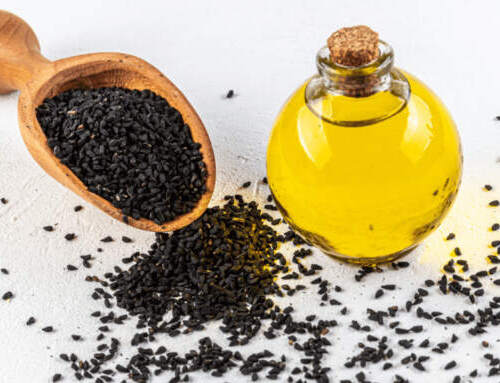When you’re experiencing severe bloating and looking for a way to alleviate it, many turn to detox teas as a remedy. Notably, Lena Dunham occasionally enjoys a cup of Smooth Move tea. However, while these teas are designed to assist digestion, they’re often perceived as a means to lose weight. So, what’s the real story behind laxative teas? Are there specific guidelines for their consumption?
In this discussion, two nutrition experts delve deep into the intricacies of detox teas and evaluate their benefits and potential drawbacks.

History of Laxative Teas: The Journey of Senna Leaf and Cascara Sagrada
Laxative teas have been a staple in traditional medicine for centuries, offering relief from constipation and promoting digestive health. Two of the most renowned ingredients in these teas are senna leaf and cascara sagrada. Their historical significance, origins, and eventual integration into modern detox teas make for an intriguing tale.
Senna Leaf: The Ancient Egyptian Elixir
The use of senna leaf as a medicinal herb can be traced back to ancient Egyptian times. Found primarily in the arid regions of Africa and the Middle East, senna was documented in several ancient medical texts. The Ebers Papyrus, one of the oldest preserved medical documents from 1500 BCE, mentions senna as a remedy for constipation.
Senna contains compounds called anthraquinones, which stimulate the intestines and promote bowel movements. Over time, Arab physicians and traders introduced senna to other parts of the world, including Asia and Europe. By the 9th century, it was a well-accepted remedy in the Islamic world, and its popularity in Europe grew during the Middle Ages.
Cascara Sagrada: The Native American Gift
Cascara sagrada, which translates to “sacred bark” in Spanish, is derived from the bark of the Rhamnus purshiana tree native to the Pacific Northwest. Indigenous tribes of North America have used cascara sagrada for its laxative properties for centuries. They discovered that by drying the bark and then boiling or steeping it, they could produce a potent remedy for constipation.
European settlers learned of cascara sagrada’s benefits from Native Americans in the 19th century. As its efficacy became more widely recognized, it was soon adopted into Western pharmacopeia. By the early 20th century, cascara sagrada was one of the primary ingredients in over-the-counter laxatives in the United States.
Modern Detox Teas: A Blend of Tradition and Trend
With the global trend towards natural and herbal remedies in the late 20th and early 21st centuries, both senna and cascara sagrada found their way into modern detox teas. These teas, often marketed for their weight loss and detoxification benefits, combine traditional knowledge with modern science. The natural laxative properties of senna and cascara sagrada, combined with other beneficial herbs, make them a popular choice for those seeking a gentle digestive aid.
However, it’s essential to remember that while these ingredients have a long history of use, moderation is key. Over-reliance can lead to potential side effects, emphasizing the importance of understanding and respecting the potency of these ancient herbs.
In conclusion, the journey of senna leaf and cascara sagrada from their traditional roots to modern wellness teas underscores the enduring trust humanity places in nature’s remedies. As we sip on our detox teas today, we are, in many ways, partaking in a ritual that spans centuries and cultures.
What’s in detox teas
Senna leaf, a primary component in many detox teas like Smooth Move, has been a trusted herbal remedy to treat constipation for centuries, as highlighted by gut health specialist Stella Metsovas. This tea, with its natural laxative properties, has shown significant effectiveness in relieving mild constipation.
Another herbal tea ingredient, cascara sagrada, functions similarly to senna, says holistic nutritionist Carley Mendes from The Tot. She explains that these teas can accelerate the transit time of food, potentially reducing nutrient absorption. However, the digestive effects of these teas can sometimes be too potent, leading to stomach cramps and diarrhea. For those new to these teas for constipation, Mendes advises starting with a mild brew. Like any tea, the strength increases with the amount of leaves used and the steeping duration.
For optimal digestive health and to prevent constipation, it’s essential to understand the potential benefits and side effects of these teas. Before diving into the world of laxative teas to help with constipation, it’s crucial to approach with caution, ensuring you don’t rely too heavily on their laxative effect.
It’s not meant to be sipped on the reg
Detox teas, including popular options like peppermint tea and green tea, aren’t designed for daily consumption.
Both experts emphasize that these teas should be reserved for occasional digestive discomfort and not as a weight loss tool. Mendes warns, “Extended use can lead your digestive system to rely on laxative properties for regular function.” Yogi Teas, a renowned brand, suggests limiting intake to no more than four cups within 24 hours and discourages usage beyond ten days.
Metsovas points out a significant concern with over-relying on teas for constipation. She mentions, “These teas can divert attention from addressing the root causes of digestive issues. For instance, those prone to constipation might be facing an underproduction of hydrochloric acid, essential for protein digestion.”
In essence, while it might be tempting to reach for a cup of dandelion tea or ginger tea to treat constipation, it’s crucial to use them judiciously. Overdependence might prevent you from exploring long-term solutions for overall digestive health.

Natural Remedies for Constipation: Beyond Traditional Teas
Constipation can be a discomforting experience, and while many turn to teas to help alleviate the symptoms, there are several other natural remedies that can be just as effective. Here’s a look at some alternative solutions:
- Fiber-Rich Foods: Increasing your dietary fiber can help bulk up stool and make it easier to pass. Foods like whole grains, fruits, vegetables, and legumes are excellent sources.
- Hydration: Drinking plenty of water can help soften the stool. Sometimes, constipation may be a result of dehydration or fluid loss.
- Probiotics: These beneficial bacteria can improve overall gut health and regularity. They can be found in fermented foods like yogurt, kefir, and sauerkraut.
- Exercise: Regular physical activity can stimulate the intestines and help with bowel movements.
- Flaxseeds: These tiny seeds can act as a mild laxative, helping to promote regular bowel movements. [Ground Flax Seed, $9.77]
- Aloe Vera: Consumed in juice form, aloe vera can help soothe the digestive tract and relieve constipation. [Aloe Vera Juice, $10.19]
- Magnesium Supplements: These can help relax the muscles in the intestines, making it easier to have a bowel movement. [Magnesium, $18.95]
- Castor Oil: This age-old remedy can stimulate the intestines and help with a bout of constipation. However, it’s essential to use it sparingly and not rely on it as a regular solution. Read here on how to use a castor oil pack. [Castor Oil Pills, $8.38]
While teas work wonders for many, it’s crucial to remember that the Food and Drug Administration does not regulate many herbal teas and supplements. Therefore, it’s essential to consult with a healthcare professional before trying new remedies, especially if you experience chronic constipation.
The allure of a cup of peppermint tea or a tea bag steeped with beneficial herbs might seem like the perfect solution, but it’s essential to explore different teas and natural remedies to find what works best for your body. Always prioritize overall health and seek long-term solutions rather than quick fixes.
Conclusion
Navigating the world of tea can be both enlightening and overwhelming. From the mild relief that a cup of licorice root tea offers to the potent effects of senna, teas have been commonly used to relieve constipation for ages. While tea can help and offer many health benefits, it’s essential to be informed about the types of teas you consume. Using laxative tea, for instance, may provide quick relief, but it’s crucial to understand its contents and potential side effects. Some teas, known for their laxative properties, can be a blend of various herbs, each bringing its unique benefits and cautions. While senna tea is made to treat constipation, over-reliance on any tea can also lead to complications.
However, if you experience constipation, remember that there are holistic approaches beyond teas. Massage therapy has been shown to aid in alleviating digestive issues. If you’re looking for a natural, relaxing way to address your digestive concerns, consider scheduling a massage at Body Ache Escape Massage Center. It might just be the soothing solution you’ve been searching for. 614-604-6358





